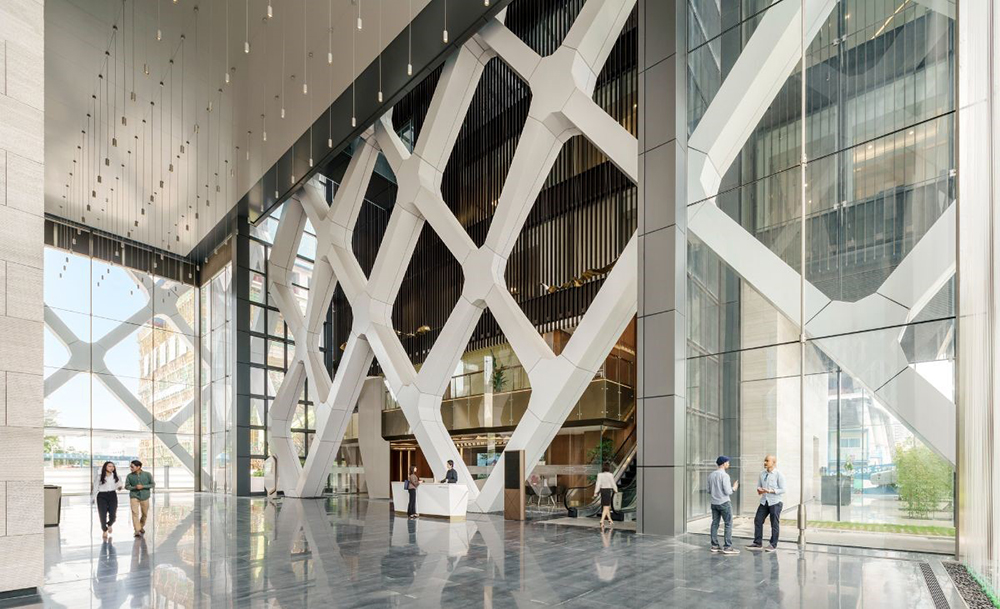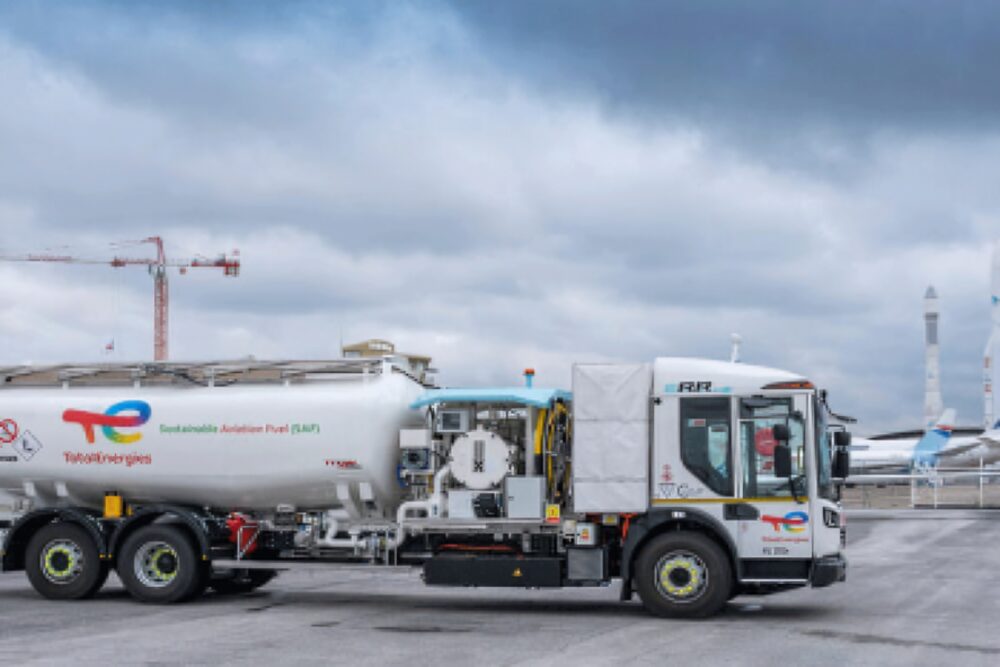
Skidmore, Owings & Merrill (SOM) has completed a 158-metre-tall, 33-storey tower, located on the edge of a public park at the centre of a key business district in Shenzhen, that responds to the region’s tropical climate through a series of biophilic and sustainable design solutions.
The firm was commissioned by Shenzhen Rural Commercial Bank in 2012 to design a new headquarters that balances the bank’s vision for the future alongside its history as a rural credit union. The design incorporates a distinctive external diagrid that significantly reduces solar gain. Inside, responsive solar shading technology and natural airflow enhance staff wellbeing.
The tower’s façade is defined by an external diagrid, which serves as both the building’s structure as well as an important solar shading element. At its base, the diagrid widens to create framed openings and views to the surrounding park and South China Sea, a short walk from the building.
“We’re always exploring opportunities to synthesise inventive engineering solutions with architectural design. The Rural Commercial Bank Headquarters gave us the chance to incorporate a diagrid—similar to an exoskeleton—that pulls the structure to the exterior and effectively suspends the tower within to create column-free workspaces,” explains Scott Duncan, SOM Design Partner.
Drawing upon principles from Feng Shui, in which water and wealth are intrinsically linked, the lobby is encircled by a reflecting pool and features a rippling wall of water adjacent to the main entrance. A 15-metre-high ‘rain curtain’, with droplets of water that cascade down small translucent filaments, lines the lobby’s ultra transparent glass walls. On hot summer days, these water features provide an evaporative cooling effect for the entire building. Above, suspended lighting fixtures mimic droplets of rain and the lobby’s marble walls shift from a textured to honed finish to evoke water’s effect on stone.
Three essential elements—earth, water and air—figure prominently in the building features, from the multi-storey rain curtain in the main lobby, to the striated marble cladding the tower’s elevator core, and to the natural ventilation system that brings fresh air into common areas and office spaces. Reflecting pools, grey granite paving and seating areas, and arrays of trees and ground cover define the main entrance spaces and small gardens at the base of the tower. This tactile experience at ground level transitions and becomes more atmospheric as one progresses up the tower to the open floor plans and ‘floating’ diagrid above. At the crown of the tower, operable walls and an outdoor deck blur distinctions between indoor and outdoor spaces.
Two vertical atria span the height of the tower. On each floor, employees can use louvres to open and close vents, accessing fresh air from the atria. This allows the building to ‘breathe’ when Shenzhen’s climate is pleasant, filling the entire building with fresh air so tenants can enjoy the same air inside as they do outside. By functioning like airways in a body and cycling fresh air throughout the building, these features generate significant savings in environmental and energy efficiency. This system prioritises tenant comfort and wellbeing to a degree typically unheard of in office environments. Interior spaces are defined by a minimal glass perimeter wall and a daylight-responsive shading system. A communicating stairway runs the height of the tower, fostering connectivity and collaboration among coworkers.
SOM’s work on the Shenzhen Rural Commercial Bank Headquarters included architecture, mechanical, electrical and plumbing, structural and civil engineering. The tower is LEED Platinum and is targeting China Green Star certification.








